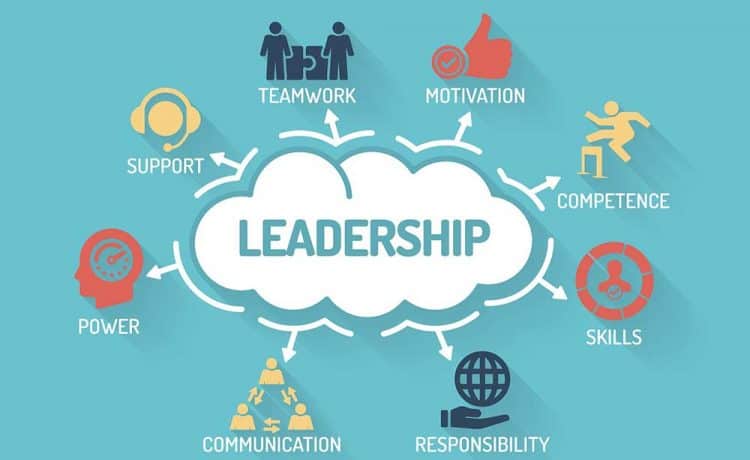In today's business world, teamwork is more important than ever. With the right team in place, businesses can accomplish great things. But how do you develop a team that works well together? The answer lies in leadership development. By investing in the development of your leaders, you can create a foundation for success that will ripple out through the rest of your organization. In this blog post, we'll explore why leadership development is so important for successful teamwork.
In order to have a successful team, you need effective leadership. That’s why leadership development is so important. It helps equip people with the skills they need to be successful leaders. But what exactly is leadership development? And how can it benefit your team? In this blog post, we’ll explore those questions and more. We’ll also give you some tips on how you can start developing your own leadership skills. Staff Engagement Queensland
Defining Effective Leadership Development
In order to have successful teamwork, it is essential to have an effective leadership development plan in place. There are a few key elements that need to be included in order for this to be successful. First, you need to identify the specific goals and objectives that you want to achieve as a team. Once these have been established, you need to create a roadmap that will help everyone on the team understand how these objectives can be met. This roadmap should include timelines, deliverables, and milestones so that everyone is aware of their roles and responsibilities. Finally, you need to establish some sort of accountability system so that everyone is held accountable for their actions and results.
The Importance of Effective Leadership Development
In order to have a successful team, effective leadership development is key. There are many benefits to having an effective leader such as:
-A leader can help provide a clear sense of direction for the team and help them stay focused on the task at hand.
-A leader can help motivate team members and keep them engaged in the work they are doing.
-A leader can help build trust within the team and create a positive working environment.
-A leader can provide support to team members when they need it and help resolve any conflict that may arise.
What Makes an Effective Leader?
There are many qualities that make an effective leader. However, the most important qualities are integrity, vision, and courage.
Integrity is the foundation of effective leadership. A leader with integrity is trustworthy and honest. People are more likely to follow a leader they can trust.
Vision is another important quality for leaders. A leader with vision can see the big picture and develop a plan to achieve it. People are more likely to be motivated by a leader with a clear vision.
Courage is also essential for leaders. A leader with courage is not afraid to take risks and stand up for what they believe in. People are more likely to respect and admire a leader who has the courage to stand up for what they believe in.
The 5 Stages of Effective Leadership Development
There is no one-size-fits-all answer to the question of how best to develop effective leaders. However, there are certain common stages that successful leadership development programs typically go through.
- Assessment: The first stage of any leadership development program is assessment. This is where you take a close look at your current team and identify areas where leadership development would be beneficial.
- Planning: Once you have identified the need for leadership development, the next stage is planning. This is where you decide what kind of program will best meet the needs of your team.
- Implementation: The third stage is implementation, which is when you actually roll out the leadership development program. This is where you train leaders and provide them with the tools they need to be successful.
- Evaluation: After the leadership development program has been in place for awhile, it’s important to evaluate its effectiveness. This allows you to make necessary adjustments and ensure that the program is having the desired impact on your team’s performance.
- Sustainability: The final stage of effective leadership development is sustainability. This is where you work to ensure that the gains made during the program are maintained over time. This may involve continuing education and support for leaders as they transition into new roles within the organization.
The Benefits of Effective Leadership Development
Leadership development can bring many benefits to both individuals and organizations. Perhaps most importantly, it can help individuals develop the skills and knowledge needed to be effective leaders. Additionally, leadership development can help organizations build a pipeline of future leaders, create a more positive work environment, and improve team performance. Change Management Queensland
Individuals who participate in leadership development programs often report increased self-confidence and improved communication skills. They also tend to have a better understanding of their own strengths and weaknesses, as well as those of others. As a result, they are better equipped to manage conflict and build consensus. Furthermore, research has shown that leadership development can lead to higher levels of job satisfaction and career success.
Organizations also stand to benefit from leadership development. A study by the Conference Board found that companies with strong leadership development programs are twice as likely to be high-performing organizations. Additionally, these companies are more likely to attract and retain top talent, achieve superior financial results, and enjoy higher levels of customer satisfaction.
Thus, it is clear that leadership development can bring many benefits to both individuals and organizations. When done correctly, it can help individuals develop the skills needed to be effective leaders while also helping organizations build a pipeline of future leaders, create a more positive work environment, and improve team performance.





